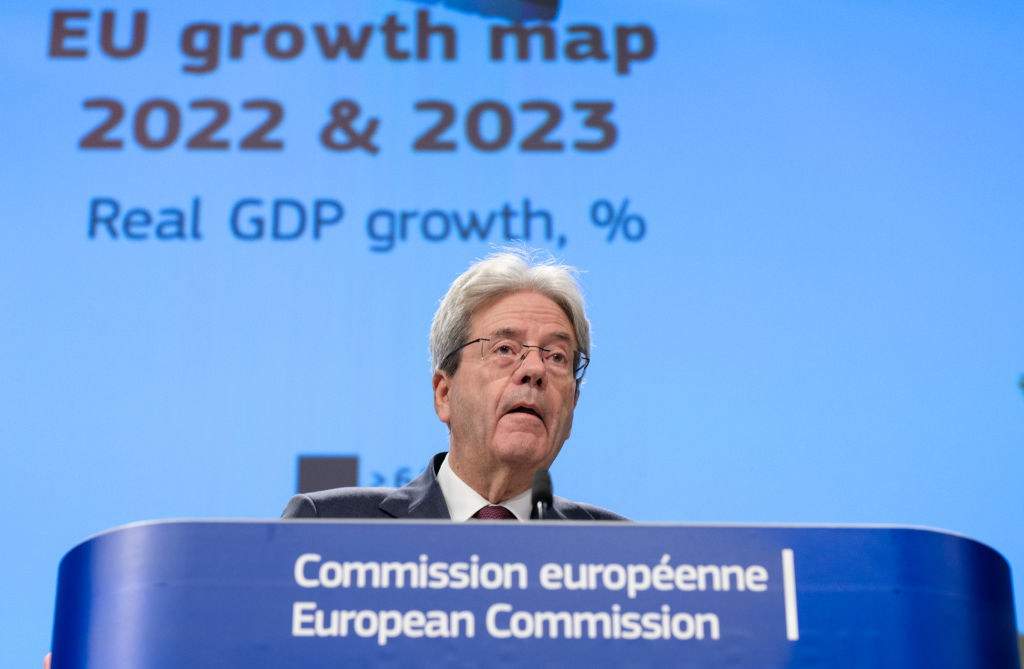EU expecting recession as inflation remains high


A free daily email with the biggest news stories of the day – and the best features from TheWeek.com
You are now subscribed
Your newsletter sign-up was successful
The European Union is now expecting a recession, European Commission officials said Friday. The commission's economic forecast for fall 2022 predicted growth of just 0.3 percent, which is a cut of more than one percent from estimates back in July, Politico reports.
Officials believe the economy is shrinking and will continue to do so through the first quarter of 2023, fueled in large part by an "energy-driven cost-of-living" crisis resulting from the nearby war, Bloomberg writes. "Amid elevated uncertainty, high energy price pressures, erosion of households' purchasing power, a weaker external environment, and tighter financing conditions are expected to tip the EU, the euro area, and most member states into recession," the commission wrote. Germany, Latvia, and Sweden are actually expected to have negative growth in 2023.
"The EU economy is at a turning point," with the outlook having "weakened significantly," said EU Economy Commissioner Paolo Gentiloni. "Inflation has continued to rise faster than expected, but we believe that the peak is near." Interest rates are expected to increase in the EU as they did in the U.S.
The Week
Escape your echo chamber. Get the facts behind the news, plus analysis from multiple perspectives.

Sign up for The Week's Free Newsletters
From our morning news briefing to a weekly Good News Newsletter, get the best of The Week delivered directly to your inbox.
From our morning news briefing to a weekly Good News Newsletter, get the best of The Week delivered directly to your inbox.
However, experts posit that a recession won't actually be enough to bring inflation down. The Economist notes that many are still seeing a hefty rise in energy prices, and that "prices for services and goods other than food and energy increased by an annualized 6 percent over the past three months," which "suggests inflation is spreading."
"Even a recession, if people expect it to be brief, may not tame inflation," The Economist writes.
A free daily email with the biggest news stories of the day – and the best features from TheWeek.com
Devika Rao has worked as a staff writer at The Week since 2022, covering science, the environment, climate and business. She previously worked as a policy associate for a nonprofit organization advocating for environmental action from a business perspective.
